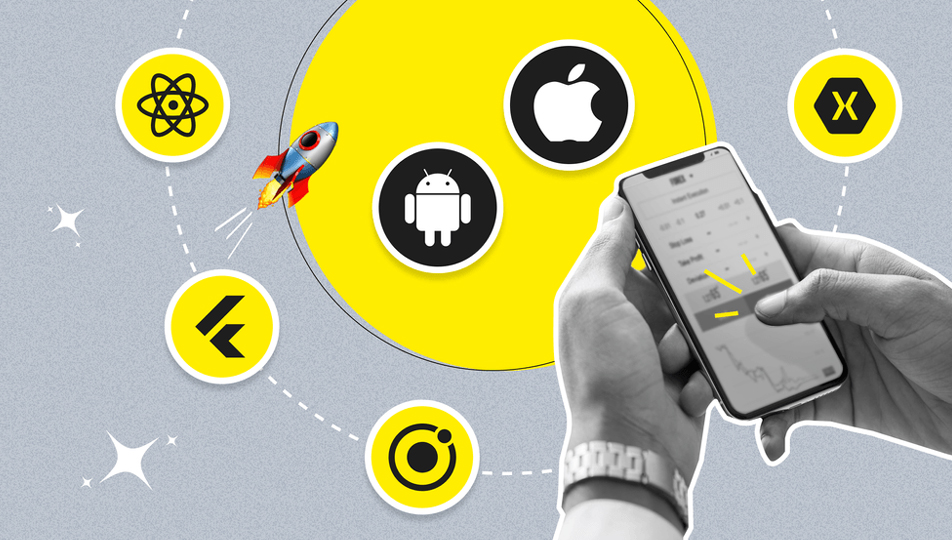

Mobile App Development
Mobile app development is the process of creating software applications specifically designed to run on mobile devices, such as smartphones and tablets. Here are the key components and considerations involved in mobile app development:
-
Platform Selection: Decide whether you want to develop for iOS (Apple) or Android (Google), or both (cross-platform development). Each platform has its own development environment, tools, and programming languages (Swift/Objective-C for iOS, Java/Kotlin for Android).
-
App Concept and Planning: Define the purpose and concept of your app, considering its target audience, functionality, and unique selling points. Create a detailed project plan and roadmap.
-
Design: Design the user interface (UI) and user experience (UX) to create an attractive and user-friendly app. Tools like Adobe XD, Sketch, or Figma are commonly used for design.
-
Development: Write the code for your app using the chosen platform's development tools and programming languages. Consider using a framework or library to streamline development.
-
Testing: Thoroughly test your app to identify and fix bugs and issues. This includes functional testing, usability testing, and performance testing.
-
Back-End Development (if needed): If your app requires a server or database, you'll need to develop the back-end to handle data storage, user authentication, and business logic. This can be done using various technologies, such as Node.js, Ruby on Rails, or Django.
-
API Integration: If your app needs to interact with external services or data sources, you'll need to integrate APIs (Application Programming Interfaces) into your app.
-
Security: Implement security measures to protect user data, including encryption, secure user authentication, and secure communication between the app and the server.
-
Performance Optimization: Optimize your app for speed and efficiency. Minimize load times, reduce memory usage, and ensure smooth user interactions.
-
Quality Assurance: Conduct rigorous testing, including compatibility testing across various devices and OS versions, to ensure your app works smoothly on a wide range of mobile devices.
-
Deployment: Publish your app to the respective app stores (Apple App Store and Google Play Store). Follow their guidelines and requirements for app submission.
-
App Store Optimization (ASO): Optimize your app's listing with keywords, images, and descriptions to improve visibility and downloads.
-
Updates and Maintenance: Continuously update your app to add new features, fix bugs, and ensure compatibility with the latest devices and operating systems.
-
User Support: Provide customer support channels within the app for user inquiries, issues, and feedback.
-
Analytics and User Data: Integrate analytics tools to gather user data and insights on app usage. Use this data to make informed decisions for improvements.
-
Legal and Compliance: Ensure your app complies with legal regulations, including privacy policies, data protection, and terms of service.
-
Marketing and Promotion: Develop a marketing strategy to promote your app, including social media marketing, app advertising, and user engagement strategies.
Mobile app development can be complex, and it's crucial to consider the specific requirements and constraints of mobile platforms. Collaboration with designers, developers, and quality assurance professionals is often essential for successful mobile app development. Additionally, staying up to date with the latest industry trends and technologies is vital to create competitive and successful mobile apps.
Our Mobile App Development Services

Android App

IOS App
We Win When Our Customers Win








Why Choose Us:
- Expertise and Experience
- Tailored Solutions
- User-Centric Approach
- Cutting-Edge Technology
- Transparency and Communication
- Scalability and Flexibility
274 +
Clients
421 +
Projects
1364 +
hours of Support
18 +
Hard Workers

Let us take the technical weight off your shoulders
BOOK A CALLLet’s Get Started
We offer full-cycle technology solutions that streamline your digital transformation journey. With cutting-edge technical expertise, INT. simplifies complex business challenges with innovative solutions for 100+ fastest-growing enterprises.


 English
English
 Hindi
Hindi
 Urdu
Urdu
 Bengali
Bengali
 Nepali
Nepali